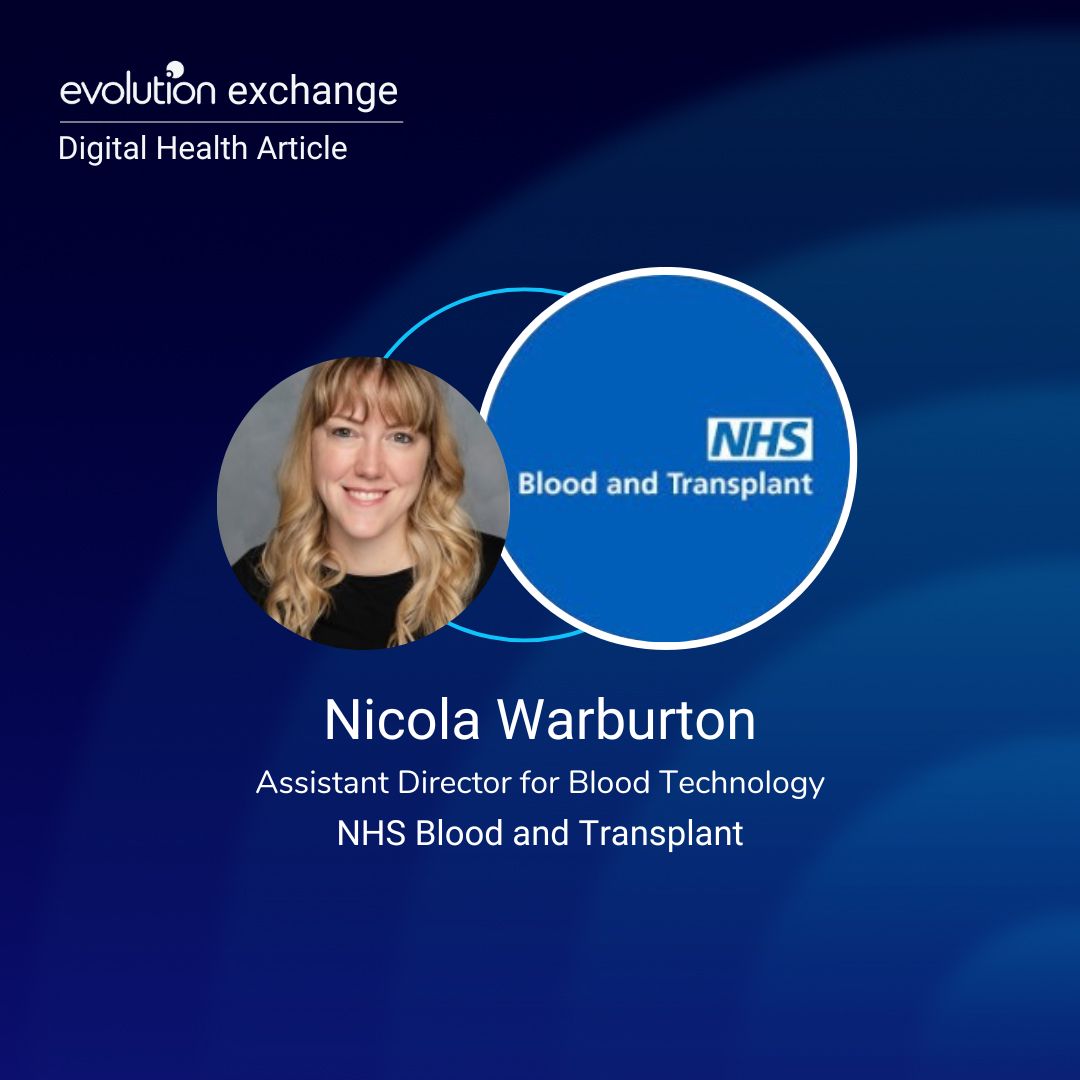The path to senior leadership in healthcare technology is rarely linear, but for Nicola Warburton, Assistant Director at NHS Blood and Transplant, each career move has been a deliberate step toward growth and greater impact. Her journey from a data manager role in 2008 to leading digital transformation across a national organisation offers valuable insights into female leadership in health tech.
Breaking the Traditional Career Ladder
Nicola’s career trajectory challenges the conventional wisdom of gradually climbing the NHS banding system. When she spotted a role at NHS Blood and Transplant in 2020, it represented a significant jump from her current grade. “It was a big jump and I thought what’s the worst that could happen? I’ll throw my hat in the ring and see how we get on.”
This willingness to take calculated risks has been a defining characteristic throughout her career. Rather than following the expected path of incremental progression, Nicola has consistently pushed herself into uncomfortable territory. “There’s definitely an expectation that you work your way through the ranks and don’t step out of your lane,” she reflects.
The recruitment process for her current role proved transformative, partly because it deviated from traditional NHS hiring practices. Instead of focusing on current banding and previous roles, the application asked for a personal statement and CV. “I felt like I was assessed for me and what I could provide rather than the bands that I was currently working at,” Nicola explains. This approach allowed her capabilities to shine through rather than being constrained by historical job classifications.
Overcoming Imposter Syndrome
Success in securing senior roles doesn’t automatically eliminate self-doubt. Nicola candidly discusses her experience with imposter syndrome upon joining NHS Blood and Transplant: “I felt like I’d slipped under the radar somehow.” A crucial conversation with her line manager helped address these concerns. “She said something to me that her line manager had said to her when she joined, and that was ‘do you respect my decision? Do you respect me as a person?”
This experience highlights the importance of supportive leadership in helping others recognise their own worth and capabilities. It’s a lesson Nicola now applies in her own management approach.
Leadership Without Technical Expertise
A common misconception in technology leadership is that technical skills are paramount. Nicola firmly disputes this notion: “No, I’m definitely not technical. I couldn’t sit in front of a computer now and write programme code. But is it needed? There’s the experts there that we employ for their subject matter knowledge.”
Her perspective on leadership centres on enabling others rather than demonstrating personal technical prowess. “My role now is about facilitating others and making sure they have what they need for us to get things done, bringing people together. For me, leadership really centres around your people, not about your technical expertise and that’s how it should be.”
This philosophy challenges women who may feel they need to be technical experts before pursuing leadership roles in technology. Nicola’s success demonstrates that strategic thinking, people management and the ability to facilitate collaboration are often more valuable than deep technical knowledge.
The Importance of Stepping Out of Comfort Zones
Career stagnation can be insidious, creeping in when roles become too comfortable. Nicola experienced this firsthand during her later years at The Christie NHS Foundation Trust. “I think the bumps were because I’d got too comfortable. It was not far from home. It was convenient. I was the person that everyone came to for answers, and I needed to step outside that.”
She describes reaching a point of complacency: “I could do it and go home, repeat. I needed the next bit, that next push, whatever that might have been.” This self-awareness led to her decision to seek new challenges, ultimately resulting in her move to NHS Blood and Transplant.
Neurodiversity as a Leadership Strength
In November 2024, Nicola received an ADHD diagnosis, which provided new insights into her working style and leadership approach. Rather than viewing this as a limitation, she has embraced it as part of her authentic self. “I’m very open about it, probably drive people mad a little bit,” she says with characteristic honesty.
This openness extends to her interview process for her current role, where she discussed her neurodiversity candidly. “One of the panel actually commented that they thought it was quite brave that I’d mentioned it. But why should I not? If you’re not going to accept me for who I am, all parts of me, then maybe it’s not the right place for me.”
Her neurodiversity has shaped her management style, particularly in creating inclusive environments. “Little things help like if you’re interviewing, give people an idea of the themes that you might ask about can massively take away that stress and help them focus.”
The Power of Female Mentorship
Throughout her career, Nicola has benefited from strong female leadership and mentorship. She identifies three key figures who have encouraged her progression: “It’s been female leaders for me that have done that. I’ve had a few male managers but I couldn’t give you a male leader.”
This experience has inspired her to pay it forward. “I love doing that side of it. There’s a few people that that I’ve seen grow and get promotions when they maybe thought they were towards the end of their career and that was it.”
Advice for Aspiring Leaders
For those looking to follow a similar path in health tech leadership, Nicola’s advice is both practical and encouraging: “Give it a go and put yourself out there.” She emphasises the importance of networking and seeking guidance: “Find someone you trust that you can just bounce ideas off or go and have a chat with that person whose role you’re interested in.”
Her approach to career development is systematic and forward-thinking. “I’ve always had a look at that next level and thought, what do I need to do?” This included pursuing a master’s degree while working full-time and raising a young child – a testament to her determination and time management skills.
Nicola Warburton’s journey illustrates that effective leadership in health technology comes not from technical expertise alone, but from the ability to inspire, facilitate and support others. Her willingness to take risks, embrace her authentic self and continuously push beyond her comfort zone has enabled her to make a significant impact on healthcare technology delivery.
Her story serves as both inspiration and practical guidance for women aspiring to leadership roles in health tech, demonstrating that with determination, self-awareness and the right support network, it’s possible to build a fulfilling and impactful career while staying true to one’s values and authentic self.





























